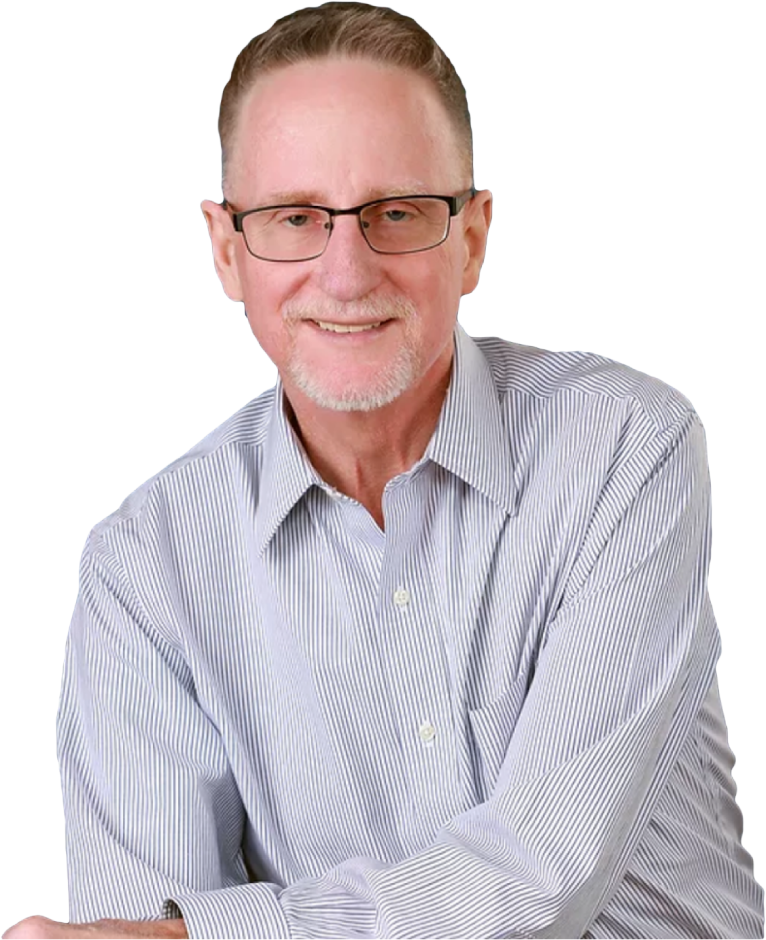SCOTT MASSEY
Inspirational Speaker
& Resilience Coach

FROM HIGH SCHOOL DROPOUT TO PHD
I started drinking when I was 12 and became a high school dropout by the time I was 15. In my twenties, I was waking up without knowing where I was or how I got there. My life didn't have meaning or purpose.
After thirty years of alcohol abuse, I decided to check into rehab and made an action plan for my life. It's been a difficult journey, but I'm almost 20 years sober now.
was a high school dropout, addicted to alcohol, and lacked hope. Now, I have a PhD, teach at the university level, and successfully run two businesses. I know adversity. I know struggle. And I know success.
Now I want to help you unleash the power to transform your life.
YOU HAVE THE POWER TO CHANGE THE TRAJECTORY OF YOUR LIFE
I believe each person has the ability to transform their life. Regardless of your past, you can make your future successful. Whether you’re struggling with addiction, broken relationships, or financial issues, you can enhance your life.
TESTIMONIALS
Dr. Scott Massey’s ability to talk with others about his past and how he got through it is amazing. Two members of my family struggle with alcoholism, and it’s difficult to watch, so his story resonated with me. He has and will continue to help others with their personal struggles.
—Katlyn B.
I have a lot of respect for Scott as a person. I’m twenty-two and living the young, “fun” stage of life, but his talk helped me realize the decisions I need to make now. I enjoyed his presentation; he spoke fearlessly.
—Danielle C.
Scott is incredibly inspiring! He took control of his life even when he didn’t have others supporting him. I enjoyed hearing his story. He did a great job making it relatable to everyone and challenged us to reflect on our own lives.
—Ellie W.
I felt the most impact when Dr. Massey talked about what makes him a better person. I personally deal with anxiety and think about things I can’t do instead of focusing on what I can do. After hearing Dr. Massey share his motivations, though, I’m inspired to set my mind on the things I can do!
—Danielle C.
Listening to Scott gave me hope for my future. He posed challenging questions that truly got me thinking. I think others can benefit from reflecting on his story and his questions, too.
—Brittany S.
Scott has a powerful story and I hope he continues to share it. He realized he wasn’t the person he wanted to be, so he made decisions that turned his life around. He created a plan of action and changed his life—we can do the same.
—Isaac D.
BOOK AN APPOINTMENT
Scott Massey is available for coaching or speaking at your next event!
Take the first step and book an appointment with Scott today!
RECENT POSTS

Working with Consultants Volume 6
The Assessment Process Checklist
As presented by Medea Valdez, Ph.D.
From her webinar, “Consultants and Accreditation Support”
Thank you for joining me once again. We’ve been talking about the PA program’s assessment process. Last week, we analyzed the purpose behind self-assessment, which allows us to critically examine, refine, and improve our programs. The SSRs we submit to ARC-PA are where we provide evidence of our assessment process.
When a consultant comes to your program, one of the first things they will look at is your assessment process, providing their expertise on your readiness. Today, I’d like to share a checklist for evaluating your current assessment processes similarly.
Self-Assessment Processes Checklist
Your program likely falls somewhere between the two extremes in this chart. If you sought the assistance of a consultant, these are the aspects of your program’s assessment process that they would observe. All moving parts need to work together, and a consultant can improve those aspects that need help moving toward the “ready” side of the chart.
A consultant can provide targeted support to help the program develop or revise its process and implement what is needed. This support can include workshops, longitudinal support concerning data collection and analysis, and guidance, and it can be separate from the accreditation application preparation. Consultants can also work alongside a program as it develops or revises its self-assessment process.
Join me next time:
We’re almost to the conclusion of my presentation regarding how best to use the help of a consultant for your PA program. In the next blog, we’ll talk about the ownership of the assessment process. Even with the help of a consultant, a PA program is ultimately responsible for owning its processes, decisions, and the verdicts you receive from the ARC-PA. I’ll provide a list of what your program is ultimately accountable for, and add tips on ensuring you’ve covered the bases and made the best use of your consultant's advice and direction.
SCOTT MASSEY

Inspirational Speaker
& Resilience Coach

FROM HIGH SCHOOL DROPOUT TO PHD
I started drinking when I was 12 and became a high school dropout by the time I was 15. In my twenties, I was waking up without knowing where I was or how I got there. My life didn't have meaning or purpose.
After thirty years of alcohol abuse, I decided to check into rehab and made an action plan for my life. It's been a difficult journey, but I'm almost 20 years sober now.
was a high school dropout, addicted to alcohol, and lacked hope. Now, I have a PhD, teach at the university level, and successfully run two businesses. I know adversity. I know struggle. And I know success.
Now I want to help you unleash the power to transform your life.

YOU HAVE THE POWER TO CHANGE THE TRAJECTORY OF YOUR LIFE
I believe each person has the ability to transform their life. Regardless of your past, you can make your future successful. Whether you’re struggling with addiction, broken relationships, or financial issues, you can enhance your life.
TESTIMONIALS
Dr. Scott Massey’s ability to talk with others about his past and how he got through it is amazing. Two members of my family struggle with alcoholism, and it’s difficult to watch, so his story resonated with me. He has and will continue to help others with their personal struggles.
—Katlyn B.
I have a lot of respect for Scott as a person. I’m twenty-two and living the young, “fun” stage of life, but his talk helped me realize the decisions I need to make now. I enjoyed his presentation; he spoke fearlessly.
—Danielle C.
Scott is incredibly inspiring! He took control of his life even when he didn’t have others supporting him. I enjoyed hearing his story. He did a great job making it relatable to everyone and challenged us to reflect on our own lives.
—Ellie W.
I felt the most impact when Dr. Massey talked about what makes him a better person. I personally deal with anxiety and think about things I can’t do instead of focusing on what I can do. After hearing Dr. Massey share his motivations, though, I’m inspired to set my mind on the things I can do!
—Danielle C.
Listening to Scott gave me hope for my future. He posed challenging questions that truly got me thinking. I think others can benefit from reflecting on his story and his questions, too.
—Brittany S.
Scott has a powerful story and I hope he continues to share it. He realized he wasn’t the person he wanted to be, so he made decisions that turned his life around. He created a plan of action and changed his life—we can do the same.
—Isaac D.
BOOK AN APPOINTMENT
Scott Massey is available for coaching or speaking at your next event!
Take the first step and book an appointment with Scott today!
RECENT POSTS

Working with Consultants Volume 6
The Assessment Process Checklist
As presented by Medea Valdez, Ph.D.
From her webinar, “Consultants and Accreditation Support”
Thank you for joining me once again. We’ve been talking about the PA program’s assessment process. Last week, we analyzed the purpose behind self-assessment, which allows us to critically examine, refine, and improve our programs. The SSRs we submit to ARC-PA are where we provide evidence of our assessment process.
When a consultant comes to your program, one of the first things they will look at is your assessment process, providing their expertise on your readiness. Today, I’d like to share a checklist for evaluating your current assessment processes similarly.
Self-Assessment Processes Checklist
Your program likely falls somewhere between the two extremes in this chart. If you sought the assistance of a consultant, these are the aspects of your program’s assessment process that they would observe. All moving parts need to work together, and a consultant can improve those aspects that need help moving toward the “ready” side of the chart.
A consultant can provide targeted support to help the program develop or revise its process and implement what is needed. This support can include workshops, longitudinal support concerning data collection and analysis, and guidance, and it can be separate from the accreditation application preparation. Consultants can also work alongside a program as it develops or revises its self-assessment process.
Join me next time:
We’re almost to the conclusion of my presentation regarding how best to use the help of a consultant for your PA program. In the next blog, we’ll talk about the ownership of the assessment process. Even with the help of a consultant, a PA program is ultimately responsible for owning its processes, decisions, and the verdicts you receive from the ARC-PA. I’ll provide a list of what your program is ultimately accountable for, and add tips on ensuring you’ve covered the bases and made the best use of your consultant's advice and direction.

